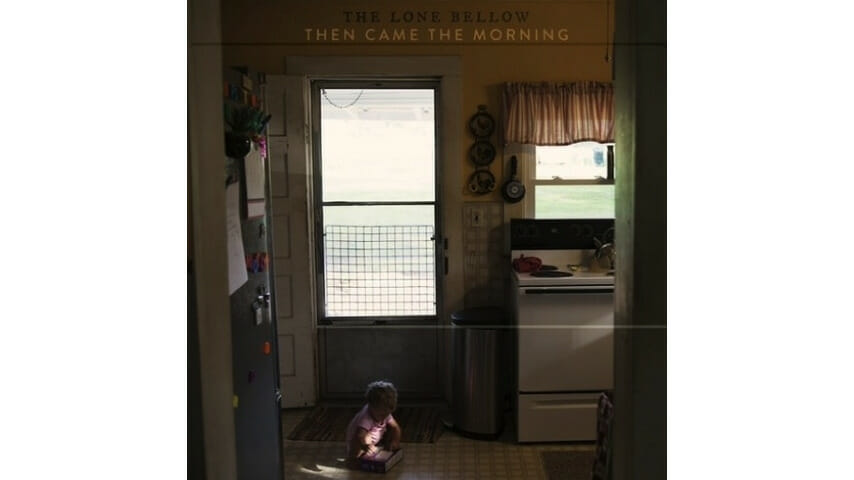It’s the rare band that can wear its influences wrapped so tightly and not suffer for it, but The Lone Bellow is that band. The Brooklyn trio’s new album is packed with signposts and reference points that should probably come off as shopworn, but most of the songs are strong enough that it doesn’t really matter. For every obvious nod at The Band, Van Morrison, Rosanne Cash, Fleetwood Mac or whomever else, there’s a striking melody or an airtight vocal harmony part that stands on its own.
Then Came the Morning is largely a continuation of the rootsy folk-rock path the band started down on its self-titled 2013 album, with the addition this time of production from Aaron Dessner of The National (and some musical arrangements from his brother, Bryce). Their subtle touch is most apparent in the quietly sophisticated strings that underpin the mournful air of “Marietta” or the understated horns that help flesh out the soaring gospel-soul feel of the title track.
Even with contributions from the Dessners, though, it’s The Lone Bellow’s album. Zach Williams, Kanene Doheney Pipkin and Brian Elmquist are at their best when they allow the songs to unfold around their voices. Williams takes most of the lead vocals, singing in an earnest tenor backed with harmonies from Pipkin and Elmquist. They underscore Williams’ urgency on “Take My Love,” adding their voices to his on the propulsive chorus and leaning into a taut call-and-response by the end. Williams sings most of “Fake Roses” on his own before Pipkin and Elmquist come in on the chorus two-thirds of the way through the song, their harmonies dispelling the sense of loneliness that permeates the song. Pipkin takes a well-deserved lead on “Call to War,” her coppery voice drawing out the wistful sorrow in lyrics that wander far from home.
Not everything works as well. The surging rocker “Heaven Don’t Call Me Home” is all cornpone tent-revival bluster, while the spare “I Let You Go” feels somehow unfinished, like a demo the band didn’t come back to. Those are relatively minor quibbles, though, and most of Then Came the Morning shows a confident band stepping more fully into a compelling sound.
